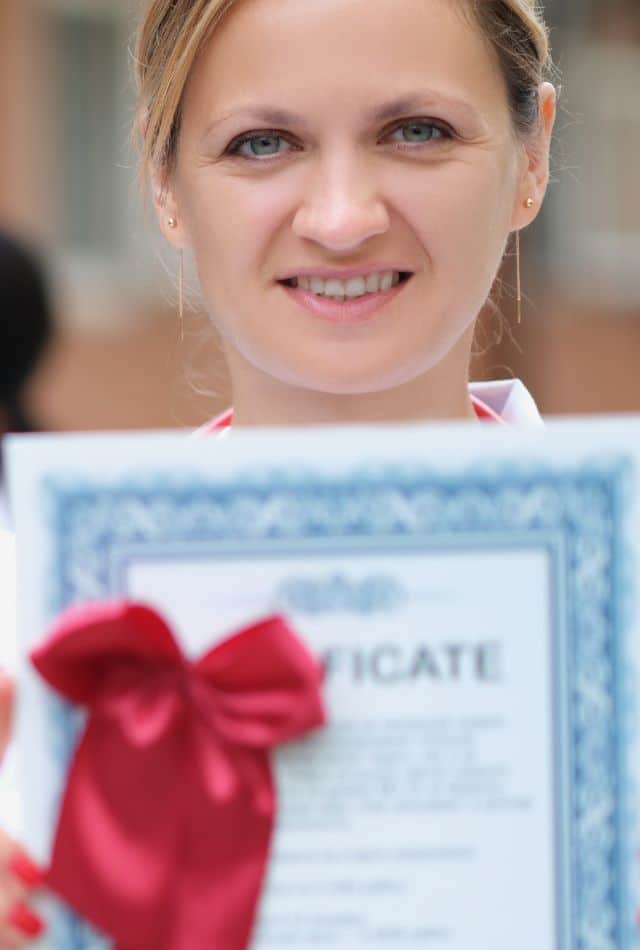Medication Aide Certification – Overview
A medication aide certification is essential to become a certified medication aide (CMA). A CMA is similar to a certified nursing assistant (CNA) and is responsible for administering drugs and overall patient care. Here’s how to get your medication aide certification to become a professional.
What is a Certified Medication Aide (CMA)?
A certified medication aide (CMA) is trained specifically to administer medications under the supervision of nursing staff and does not substitute for the comprehensive patient care duties of a certified nursing assistant (CNA). This entry-level role enables you to create a fruitful career in the healthcare industry.
What Does a Certified Medication Aide (CMA) Do?
A certified medication aide is a licensed medical professional trained to dispense medical drugs in all types of healthcare facilities. These professionals work in clinics, assisted living facilities, correctional homes, intermediate care institutions, and hospitals.
The CMA usually works under the supervision of an RN (Registered Nurse) at a healthcare service provider. They administer medications and oral drugs to patients regularly and monitor dosage levels and medication use.
Below are listed some of the common responsibilities of working as a certified medication aide (CMA):
- Gather samples for laboratory analysis
- Check the quantity of medication dosage and frequency/regularity of use
- Team up with the nursing team to handle overall patient care and medication
- Dispense non-prescription and prescription medicines to patients
- Alert supervisors of any significant change in the patient’s condition from the medication
- Educate and advise patients to comply with doctor’s instructions on the correct medication
- Follow health regulations to ensure optimal patient and staff safety
How to Become a Certified Medication Aide (CMA)?

The following steps are necessary to become a certified medication aide (CMA):
1 – Complete your education
As with other medical professions, becoming a medication aide does not require a bachelor’s degree to earn certification. Instead, you can complete basic education, such as a GED or high school diploma. You also need to be over 18 years old to apply for a CMA certification.
2 – Get a CNA Certification
A medication aide, or CMA, is not a certified nursing assistant (CNA), but a distinct role focused on medication administration, requiring separate certification. Therefore, you should get a CNA qualification before applying for a medication aide training program. Numerous community colleges and medical schools offer courses to become a CNA, which usually takes 6-12 weeks to complete. A CNA certification will train you in effective communication and patient care.
3 – Get a CMA Certification
The duration of a CMA certification course can vary, often between a few weeks to several months, depending on the state and the program. Clinical practice hours required for CMA certification can vary by state, with programs typically including both classroom and hands-on clinical training components.
A CMA license generally requires passing a state-specific examination after completing the necessary educational and training requirements. Once you receive the license, you can find employment to administer medication at any healthcare facility. However, it is important to choose a good medication aide training program to ensure you are ready for the certification exam.
Some of the most important topics that a CMA certification course should offer are:
- Medication – Types of medications, their interactions and potential side effects
- Legal, ethical and regulatory norms relating to administering medication to patients
- Record-keeping and communication in the healthcare team
- Safe administration and control of medication
Remember, the specific details of a certification training program may vary depending on the state or region you live in.
4 – Get clinical experience
The majority of CMA training programs include significant hands-on experience. You should take every opportunity during training to gain industrial experience. While experience requirements can vary, many employers prefer or require candidates to have some clinical experience, which can be gained through the training program’s clinical hours. Having sufficient industrial experience proves to employers that you have the ability and skills to handle responsibilities relating to a medication aide’s role. During the training, you should also find ways to acquire skills that are crucial for a successful career in the healthcare industry. This way, you will have noticeable experience in medical and pharmacological terminology.
5 – Apply for a medication aide’s job
Once you have acquired the relevant certification and training, you can apply for a job as a CMA at any hospital, nursing home, long-term care facility, rehabilitation facility, assisted living center, correctional facility, and medical research facility.
According to experts, focusing on your skills and knowledge of patient care procedures can improve your chances of a successful career as a CMA.
Conclusion
A medication aide certification allows you to become a certified medication aide (CMA) or a certified nursing aide (CNA) trained to administer medication. You will need to earn the right certification and license to practice, along with relevant clinical experience, before applying for a job as a licensed CMA at a healthcare, correctional or rehabilitation facility.
See Also
Medical Assistant Certification Online
Nursing Assistant Certification